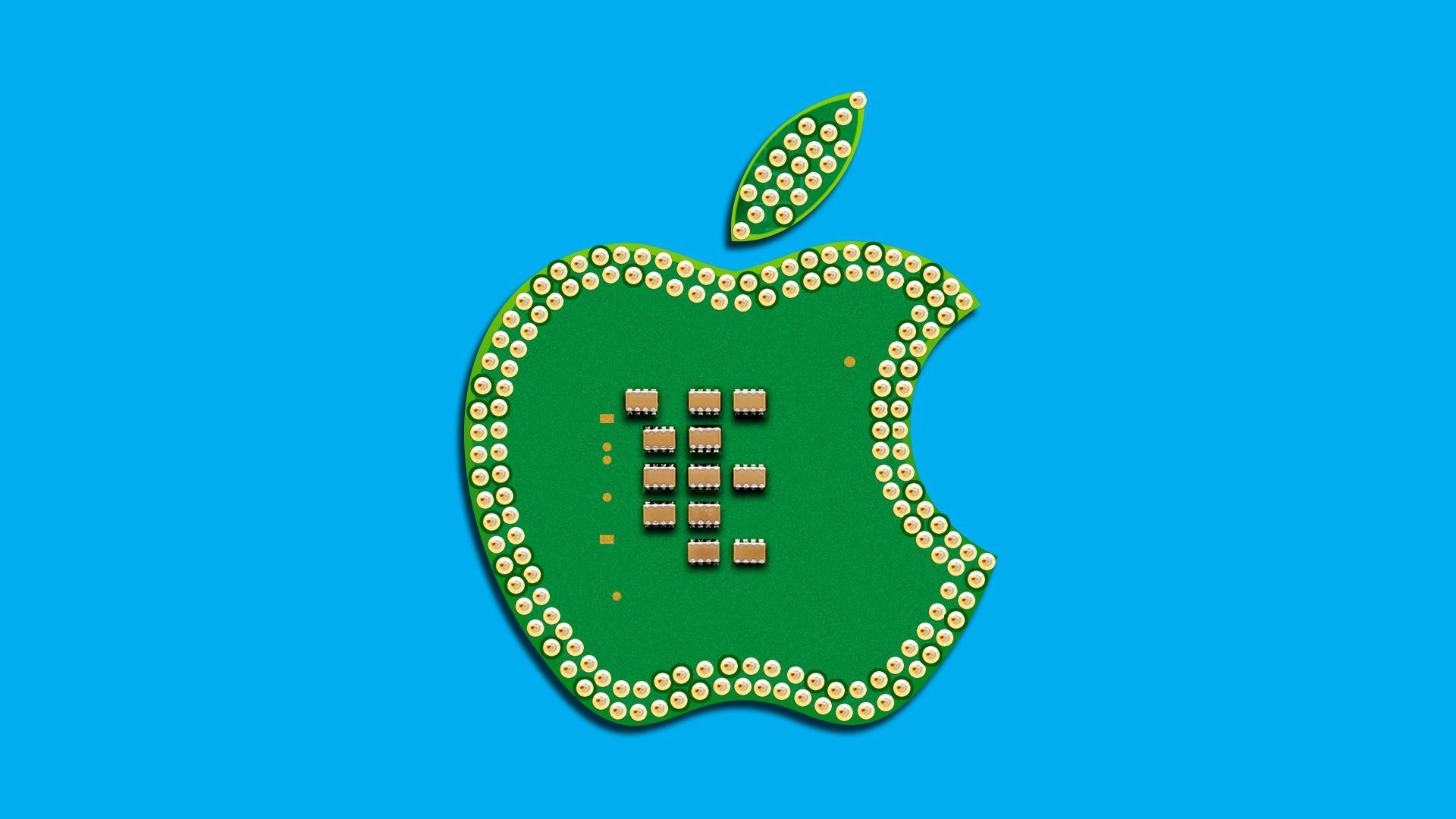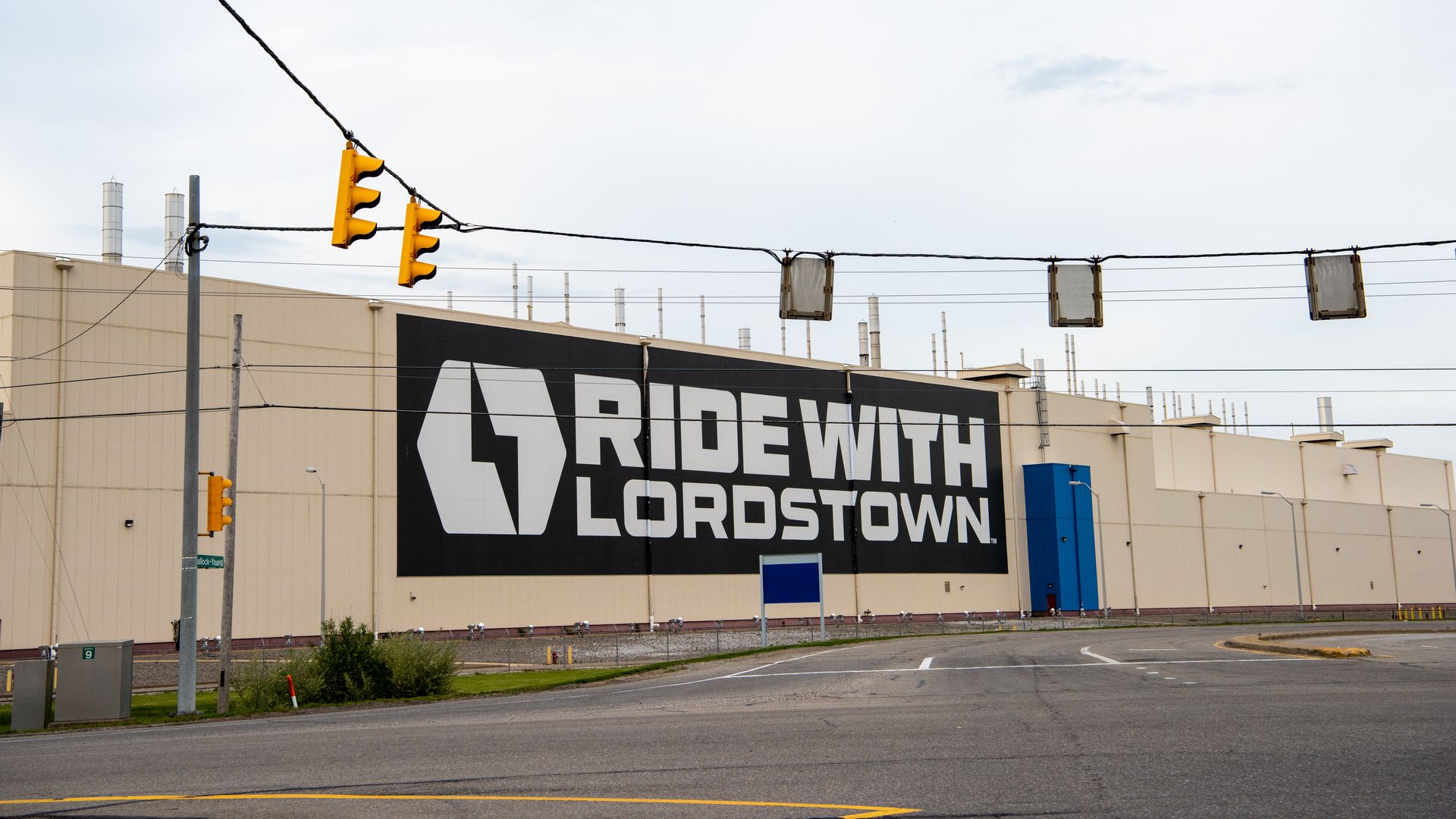| |
| |
| |
| Presented By Northern Trust |
| |
| Axios Markets |
| By Sam Ro ·Jul 28, 2021 |
| Today's newsletter is 1,198 words, 4½ minutes. Situational awareness: The Fed will release its July Federal Open Market Committee meeting statement on monetary policy at 2pm ET. 🧋of the day: 74%, the percentage of Starbucks' drink sales that are cold beverages. |
| |
| |
| 1 big thing: The "remarkable" business investment recovery |
 Data: U.S. Census Bureau; Chart: Axios Visuals Businesses are investing in themselves. Why it matters: Core capital goods orders, or those for durable goods that aren't aircraft or defense-related, are a proxy for business investment. - These equipment orders will get fulfilled in the months ahead, so they reflect businesses' expectations for the future.
- Continued growth in this measure suggests the economic growth we're experiencing today may not be the peak.
By the numbers: Core capital goods orders increased by 0.5% in June to $76.1 billion, up from an upwardly revised $75.7 billion in May. Year-over-year, this measure is up 16.7%. What they're saying: Pantheon Macroeconomics' Ian Shepherdson says the elevated levels of these orders is "remarkable." - "A combination of rebounding earnings and support from the federal government, coupled recently with clear evidence of acute labor shortages, is pushing companies into raising capex in order to expand capacity and remain competitive," he writes.
- "If you aren't spending but your competitors are, you'll lose market share," Shepherdson adds.
The big picture: "These data points provide insight into businesses' plans for investment in the third quarter," Grant Thornton chief economist Diane Swonk writes. - "Continued strength in computers and electronics offset a small drop in orders in the vehicle sector, which has suffered some of the biggest supply-chain problems due to a shortage of computer chips," Swonk says.
What to watch: These mounting orders for new capital equipment should translate to higher growth expectations from businesses. - Meanwhile, the monthly durable goods reports bear watching to see if these core capital goods orders continue to rise.
- "Companies in aggregate are cash-rich, but they remain asset-constrained after a decade of under-investment following the financial crisis," Shepherdson said. "Accordingly, we expect capex to continue rising at a rapid pace for the foreseeable future."
The bottom line: Orders for business equipment represent companies putting their money where their mouths are. Whether or not you believe economic activity has peaked, it is the case that businesses are positioning themselves for more growth. |
    |
| |
| |
| 2. Catch up quick |
| Alphabet, Google's parent company, reported blowout quarterly earnings as ad revenues surged. (Axios) Microsoft's quarterly results exceeded expectations thanks to the strength of its intelligent cloud and personal computing businesses. (Yahoo Finance) Credit Suisse failed to properly manage risk associated with Archegos Capital Management, the bank's internal investigation found. (Bloomberg) |
    |
| |
| |
| 3. Job market optimism hits 21-year high |
 Data: The Conference Board; Chart: Axios Visuals American workers are increasingly optimistic about their options. Why it matters: Employers are scrambling to find workers as demand for goods and services has been booming. By the numbers: According to the Conference Board's July Consumer Confidence report, the net percentage of consumers saying jobs are "plentiful" climbed to a 21-year high of 44.4%. - That's derived from 54.9% saying jobs are "plentiful," less a mere 10.5% that view jobs as "hard to get."
State of play: All of this is occurring as U.S. employment remains about 6.7 million jobs below pre-pandemic levels. - To be clear, there are many who would like to work but are sitting out because of issues like virus concerns and child care.
What they're saying: Importantly, the shortfall in U.S. employment is not for lack of demand. - "This points to a rapid turnaround in the labor market and suggests further declines in the unemployment rate in the months ahead," Renaissance Macro Research economist Neil Dutta said of the Conference Board's data.
What to watch: Wells Fargo senior economist Tim Quinlan says to keep an eye on the next few Consumer Confidence reports to see if this labor trend continues. - "As additional jobless benefits expire and kids return to school in coming months, these measures will offer early clues about how healthy job growth will be in the autumn months," he writes.
The bottom line: Workers have a lot of leverage, perhaps even more so than they realize. They may want to take advantage of it while it lasts. |
    |
| |
| |
| A message from Northern Trust |
| How investors can navigate a changing tax environment |
| |
 |
| |
| The prospect of higher tax rates has investors rightfully concerned about their bottom line. A new report from The Northern Trust Institute explores how to address unrealized gains in your portfolio and implement other tax-efficient investing strategies. Learn more. |
| |
| |
| 4. Apple needs more chips |
 |
|
| Illustration: Aïda Amer/Axios |
| |
| Apple reported quarterly sales and earnings that were far better than what analysts were expecting. But these numbers could've been even better if the company had access to more chips. Why it matters: Over the past year, automakers have been the focus of the global chip shortage as these supply constraints have led to explosive prices in used cars. - But the chip shortage has also been having a material impact on other industries.
What they're saying: After the company's quarterly results were released on Tuesday, Apple CEO Tim Cook told CNBC how the chip shortage held back sales. - "The shortage primarily affected Mac and iPad," Cook said. "We had predicted the shortages to total $3 to $4 billion. But we were actually able to mitigate some of that."
- Cook noted that the company's shortfall came in at the lower end of that initially predicted range.
Threat level: "We expect supply constraints during the September quarter to be greater than what we experienced during the June quarter," Cook said on a call with analysts. - "The constraints will primarily impact iPhone and iPad."
The bottom line: Shortages will continue to be a problem for businesses aiming to maximize sales and profits. But on the bright side, it also reflects potential business activity that has yet to be realized. |
    |
| |
| |
| 5. Peaking under the hood at Lordstown's rescue deal |
 |
|
| Dustin Franz/Bloomberg via Getty Images |
| |
| Lordstown Motors just announced an apparent rescue deal in a gambit that layers more financial engineering into the pre-revenue electric truck maker that last year merged with a SPAC, Axios' Kate Marino writes. Catch up quick: The company is now under federal investigation for misleading investors about its preorders, and in June it said it may not be able to begin vehicle production or continue as a going concern. Driving the news: Yorkville Advisors on Monday committed to purchase up to $400 million in Lordstown stock over the next three years, from time to time, when Lordstown asks it to. - Yorkville appears to be an intermediary here, with designs on selling the shares to other investors (the release notes that the fund can sell them even before taking possession of them).
Why it matters: Lordstown isn't working with an investment bank on a traditional or at-the-market equity offering. Given its financial distress and potential legal troubles, that's not a good sign. - As RBC analyst Joseph Spak wrote in a research note Monday, it's a "seeming indication that a traditional underwritten deal is not an option right now."
- Bloomberg Opinion's Matt Levine adds that an investment bank could get "very sued" if it sold Lordstown shares to investors and Lordstown then got in trouble with regulators and couldn't continue as a going concern.
Context: Usually when investment banks or brokers help distressed companies raise capital, they do it on a "best efforts" basis. That means if the bankers can't raise the money from investors, they can shrug and say "I tried" — and walk away. They're not on the hook for the funds. - "It takes a big stomach for risk to commit to buy that much stock from a company with a reputation for performance and candor like Lordstown's," Erik Gordon, a professor at the University of Michigan's Ross School of Business, tells the Pittsburgh Post-Gazette.
Keep reading |
    |
| |
| |
| A message from Northern Trust |
| How to prepare your portfolio for tax reform |
| |
 |
| |
| Prepare your portfolio and wealth plan for change with research-based insights on the likelihood of proposed tax policy changes and cutting-edge wealth planning strategies for managing complex wealth from The Northern Trust Institute. Ready for reform? |
| |
| 🎤 of the day: The U.S. sold the sole copy of Wu-Tang Clan's album "Once Upon a Time in Shaolin" forfeited by Martin Shkreli. The price was not disclosed. |
 | | It'll help you deliver employee communications more effectively. | | |
No comments:
Post a Comment